 Adding value is essential to growing bigger ears.
Adding value is essential to growing bigger ears.
But be careful.
Because it’s (really) easy to add TOO MUCH value to a conversation.
FOR EXAMPLE: imagine your colleague, Karen, is enthusiastically telling you about her great new idea. She’s excited, optimistic and really “getting into” her explanation.
So, a few seconds into the conversation, you can’t help but interrupt with suggestions to make it better.
“You know that’s a great a idea Karen! Here’s what you should do. Start by going to this website and buy these two products. Then, talk to Mark, he’s good with this kind of stuff. Oh, and instead of selling ads online, you know what would be a BETTER idea? Well, one time I told one of MY clients…”
And all of the sudden, the momentum is reversed.
And Karen is thinking, “Wait, um, wasn’t this MY idea?”
Well, it WAS, until you hijacked the conversation by trying to add too much value to it!
Which means you did three things wrong:
1. You weren’t listening — you were too busy trying to contribute.
2. You weren’t collaborating — you were too busy trying to prove yourself.
3. You weren’t helping — you were too busy trying to take ownership of someone else’s idea.
BIG mistake.
Because even if you DID make Karen’s idea a little better, you still took away some of her ownership of that idea -– which made her feel A LOT worse.
Not a good trade off.
AND HERE’S THE PROBLEM: some people don’t even realize THAT they try to add too much value.
(I should I know: I used to be one of them!)
SO, REMEMBER THIS: while adding too much value is not always intentional, it’s still an unconscious display of disrespect.
And the people you’re engaging with will know it.
Because it’s rude, frustrating and unapproachable.
So, if you want to avoid adding too much value to your conversations, remember these DO’s and DONT’s:
DON’T … match or one-up people’s points.
DON’T … try to solve the problem too quickly.
DO … give them the glory.
DO … trust in your ability to add value after (not during) listening.
DON’T … feel the need to prove yourself every ten seconds
DON’T … respond too soon or rush to give answers.
DO … allow the speaker to set the pace of the conversation.
DO … let the other person fill in the empty spaces.
DON’T … impose your own structure on what is being said.
DON’T … project your own meaning onto the speaker.
HERE’S YOUR CHALLENGE: post these caveats in a visible location somewhere in your office. That will help you become more mindful of this dangerous interpersonal habit.
AND REMEMBER: listening is not the same thing as waiting to talk.
So, next time a colleague comes to you with a new idea or a business challenge, don’t try to add too much value to the conversation.
Grow bigger ears by biting your tongue.
LET ME ASK YA THIS…
Are you trying to add too much value to the conversation?
LET ME SUGGEST THIS…
Share your best three tips for monopolizing the listening.
* * * *
Scott Ginsberg
That Guy with the Nametag
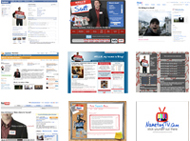 Are you a friend of The Nametag Network?
Are you a friend of The Nametag Network?
Read more blogs!
Rent Scott’s Brain!
Download articles and ebooks!
Watch training videos on NametagTV!
Make a name for yourself here…

 Who are your mentors?
Who are your mentors?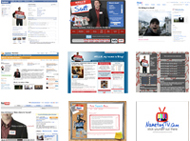 Are you a friend of
Are you a friend of 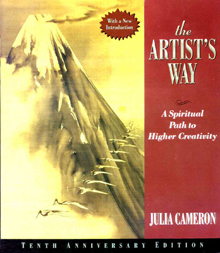 In Julia Cameron’s
In Julia Cameron’s 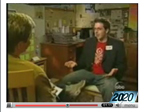 Are you the luckiest person you know?
Are you the luckiest person you know? ATTENTION ANYONE UNDER 25!
ATTENTION ANYONE UNDER 25!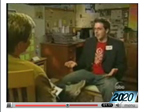 Are you the luckiest person you know?
Are you the luckiest person you know? “But” is a very dangerous word.
“But” is a very dangerous word.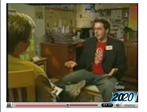 Are you the luckiest person you know?
Are you the luckiest person you know? In the 2003 film The Life of David Gale, there’s a great scene where Kevin Spacey and Laura Linney are debating Capital Punishment:
In the 2003 film The Life of David Gale, there’s a great scene where Kevin Spacey and Laura Linney are debating Capital Punishment: * * * *
* * * *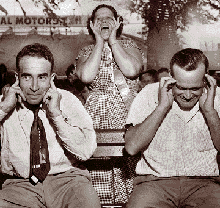
 * * * *
* * * * Last week I briefly talked about
Last week I briefly talked about